Creator Spotlight is a weekly series celebrating young Nigerians in the creative industry doing unique things. Everyone has a story, and Zikoko wants to tell it.
I’m a person of many names. Some know me as Sasha, Nosa, Saz or Zemi/Zemee, and I might add another one to spice things up a bit. But I haven’t really thought it through yet. I’m a filmmaker, writer, digital collager, photographer, explorer and lover of food and films.
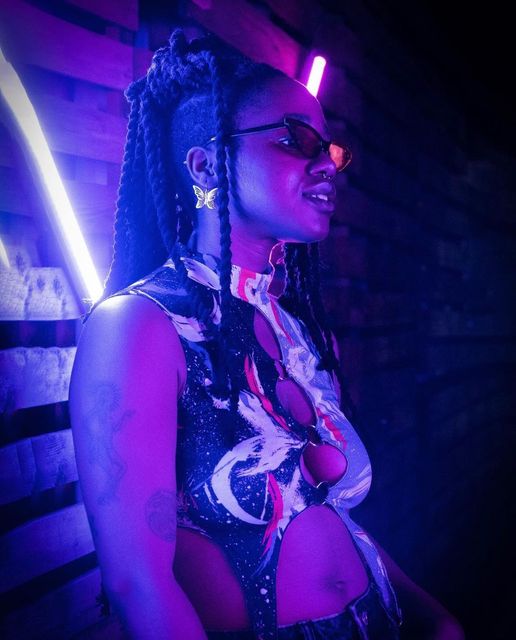
Do you have a favourite film?
Oh, I do. The first ones that come to mind are anything by Celine Sciamma. She’s a French filmmaker. She made Portrait of a Lady on Fire, Tom Boy and Girlhood. I like Persona by Ingmar Bergman, one of my newer favourite movies. I love Jennifer’s Body and Kajillionaire.

Dying because I only know three of those. How did you fall in love with films?
I was surrounded by books because my mum loved reading. She was an English professor. We were also surrounded by movies in the same way. My siblings and I were also raised by an older relative, and she liked films. We used to go across the street to rent them. I remember borrowing Little Mermaid, Sound of Music and many others.
Films became an escape for me, and I think, for my siblings too. Because we moved around a lot, it became our one constant thing. Wherever you go, you see the same thing on TV. It was nice to have that locus of control. My siblings and I used to critique movies a lot. We’d talk about how their accents were too forced, things they could’ve done differently and all. But I didn’t really know it was something I’d make. There was even a time I wanted to be an actress, something I’m still hoping to explore in the future.
I saw your cameo in your movie, Ixora. Was that your acting debut?
That wasn’t supposed to happen. We needed more extras, and my co-director, Nengi, was like, “Go in there, Saz.” My best friend, Lotanna, gave me clothes, and I was just like, “You know what? Maybe it’s meant to be”. I did a little dancing in the club scene. And that was it.
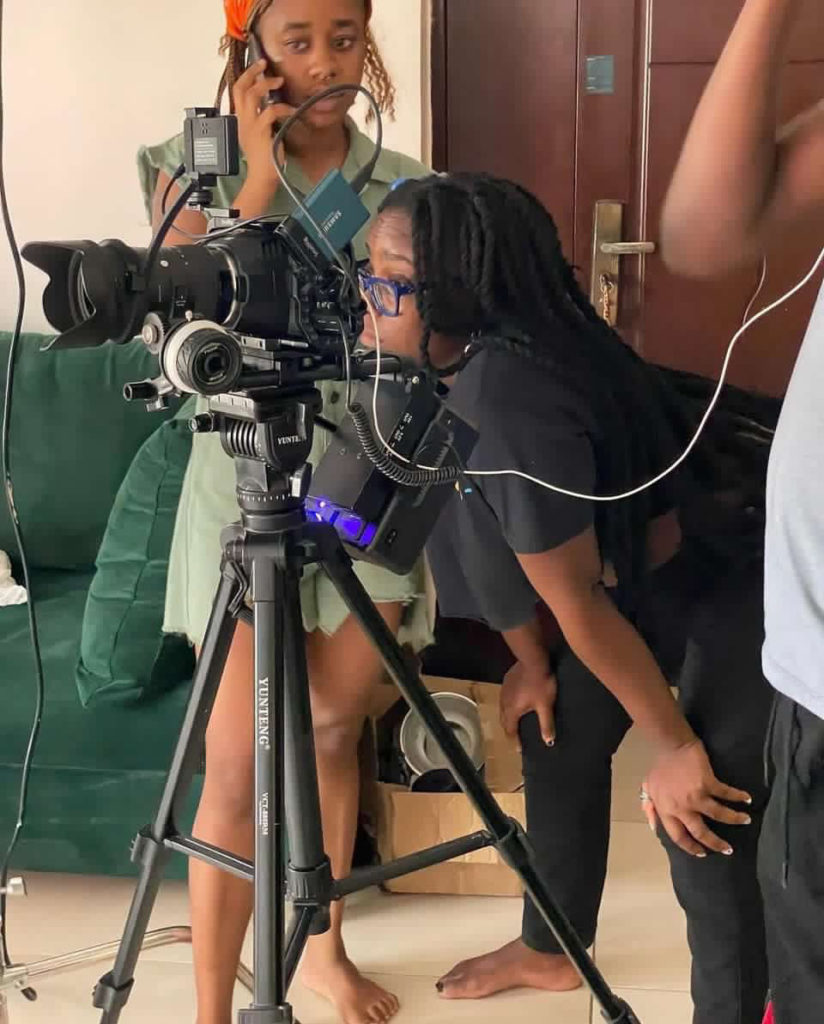
Did you study something related to what you’re doing now?
I studied sociology in school, and I was planning to be a lawyer. I honestly think everything I’ve studied and experienced helps me to be a filmmaker. Sometimes when I go through certain things, I’m like, you know what? It’s good for the cinematic experience. So yeah, sociology helped me understand how human beings create structures, what these structures mean to them, how it affects them, and how they control the structures. And with film, it’s kind of the same thing, because you are trying to replicate different structures, and just experimenting with what these structures can do. It was definitely helpful.

What was your first moviemaking experience like?
My first film was for a cultural club I was part of in university. I was the communications coordinator, and we needed to promote an event. So I decided to make a series of three short films. It didn’t require money. It was just my phone, my friends and then uploading on social media.
The first planned film I made and released is Anwuli, which means “joy”. That was when I really started to realise that making films is not a solitary experience. You need to reach out to people and push boundaries. I used to do everything myself: record, direct, sound. But then I just realised I needed other people. Someone showed me how I could connect with people on Facebook.
For instance, a director wants to make a movie but doesn’t know how to write, and a writer doesn’t know how to direct but wants to be involved in making movies. Everybody just tries to work together to create something and grow their careers. It’s a community of people who just want to create work with little to no money involved. So the budget for my first film was maybe $300. I was working a 9-5 around that time. I just asked my friends to act, and I worked with a community of people just looking to make work.
Afterwards, I was like, “I had to pay people”, so I decided to increase my budget a bit. The more I create things, the more I realise filmmaking is very expensive. Financing is the hardest part of filmmaking.
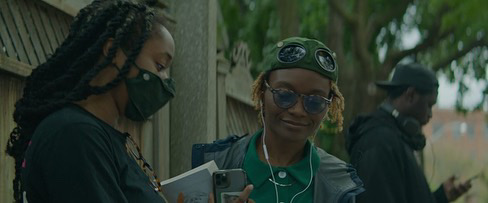
In Ixora’s end credits, I noticed you were the writer, co-director and co-producer. Was it exhausting?
I like writing. I like being able to bring to life the vision I have when I’m writing, so directing comes naturally. While I’m writing, I’m already thinking about who would fit which role. Even if it’s hard, I don’t consider giving up filmmaking. It doesn’t feel like it’s taking anything away from me. It feels like an extension of me.

You’re a writer who likes to write? Wow
Of all three — writing, producing and directing — writing can be the hardest. I’ve come to understand my process, so that makes it look easy. I can do it, but it’s not easy. When someone hears you’re a writer, they feel you can just wake up one morning and write a book. I wish I could do that. But it requires a process. And the process is not just writing; it’s everything from experience to reading to watching things. Playing is part of the process. All of them are the ingredients that produce writing.
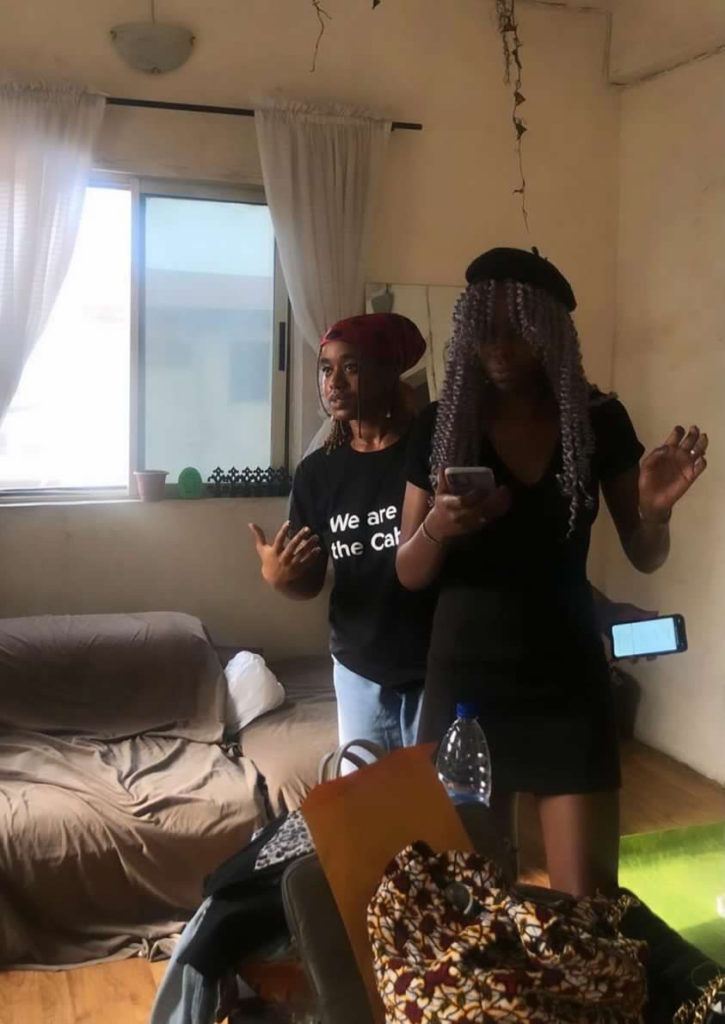
Does writing your own movies make it easy for you to bring your vision to life?
Definitely. I’ve directed other people’s work before, and it’s harder because you’re not in that person’s head. Yet when I produce what I direct and wrote, it doesn’t come out 100% the way I want it because I still have actors who can bring a different (sometimes better) vision.
This happened in Ixora. I had a vision of what I wanted out of the characters, but our main character, played by Dafna, brought a different quality to Izi’s character. It felt like she was reintroducing me to this character I made up. So yes, it’s easier to direct my own work, but it doesn’t necessarily mean my vision will come out the way I want it. It’s like, this is what you want, but keep an open mind that I might come out differently, better even.
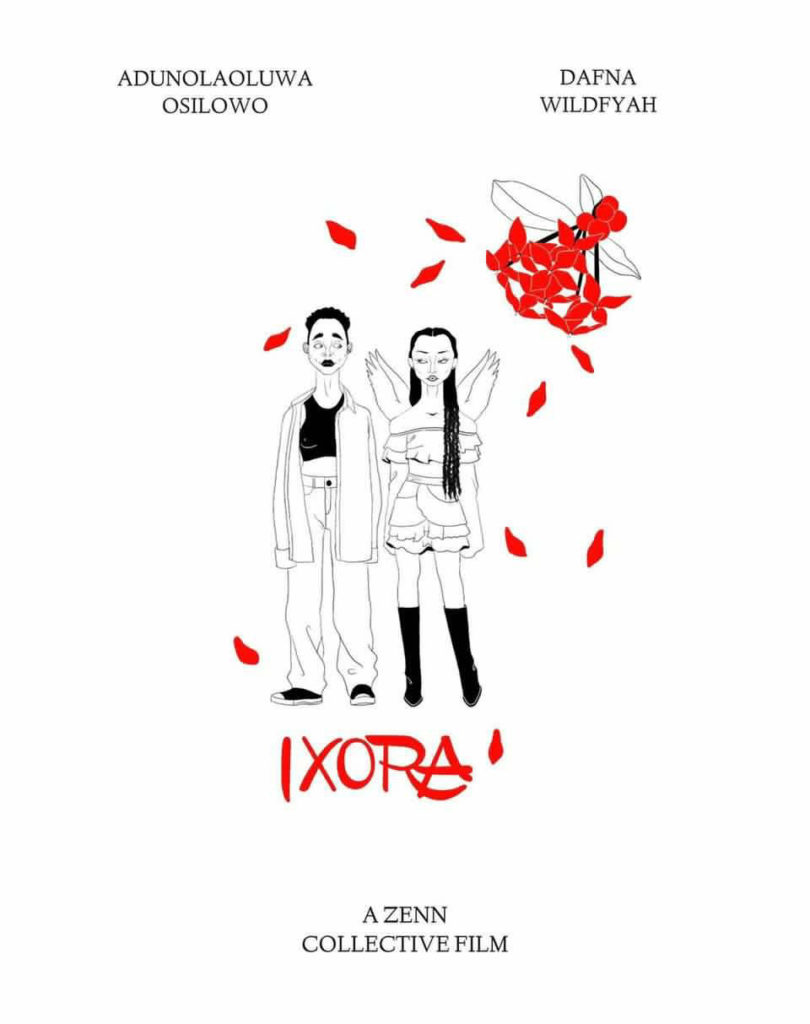
How many films have you created so far?
I’d say roughly 10, including music videos. I’m still writing new ones and some are in production.
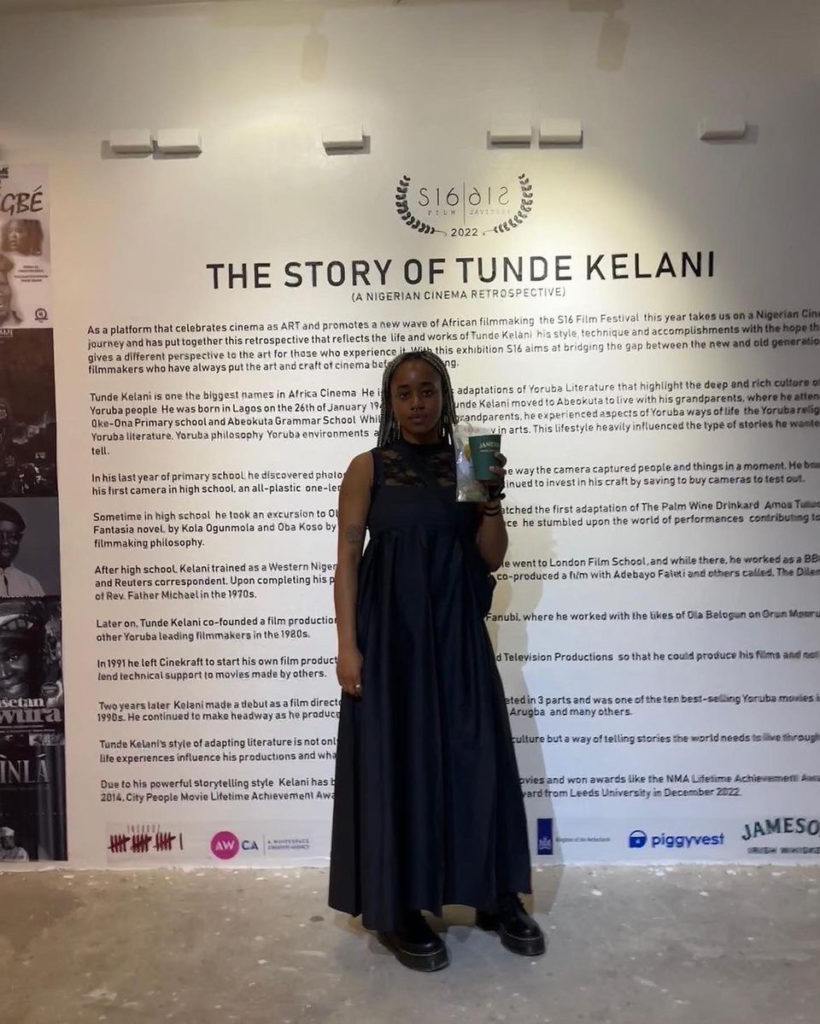
Do you have any favourites?
My first film, Anwuli, is a fave. It’s so beautiful. The production process was easy. The only thing I don’t like about it is the sound quality. I wish the volume was a bit lower, and some of the audio parts were crisper. But I love the music. It was an original composition by a Ukrainian composer I met online — Myroslav Melymuk.
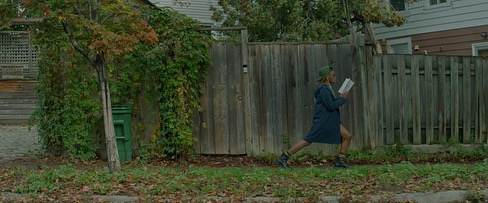
Carmilla is another favourite. It was just a fun thing to make. Another one I really like is Baby, This Is How You Break Open. When I feel down sometimes, I go back to watch it. If I want to process an experience or emotion, an efficient way for me to do it is to make a film.
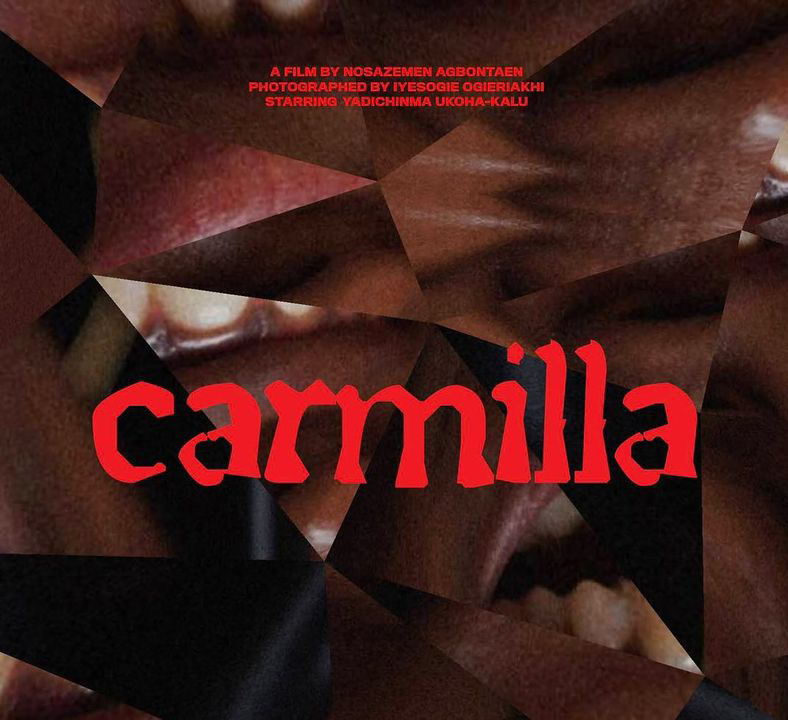
Oh, it shows. Ixora had me in my feelings. What was the process like?
It was shot in two days, but it was supposed to be three. If you come with that “It will work” mentality, sometimes, it means giving yourself extra room for surplus. If we had another day, there was a scene I wish we could’ve added, but we were constricted for time.
My friend wanted us to make a film, so I brought a draft, but they did not feel it. It wasn’t clear enough. I wrote another one two months later, based on a conversation I had with myself about women’s bodies and how they present them. I wanted answers, and somehow, I translated this dialogue into characters That was it.
The next thing was casting. I already knew who would play the two main characters. Next was financing. We tried to apply for grants. But we didn’t get any, so we put filming off for a bit. Later, we were just like, “Let’s do what we can with what we have”. Me alongside my co-proucer and friend contributed money, and everyone else was briefed on how much we were working with. We practised a lot. Shout out to everybody for putting in the work.

And are you getting paid to make films yet?
I’m getting paid now.
When I made Ixora, I wasn’t. Baby, This is How You Break Open costs zero naira to make. We didn’t spend much on Carmilla. We had to pay for a ₦3k location and bought a few costumes like the dress and scarf — it only had one character after all. I think we spent under ₦5k. Although we paid to host it on a website at one time, but it wasn’t expensive. Ixora is the most expensive movie my friends and I funded. I don’t remember how much it was.
How much are your movies making now?
They haven’t made any money yet. When Ixora gets on a streaming platform, the team will benefit. But for now, it hasn’t made money. That’s another misconception people have about filmmakers. They assume you’re balling. Depending on your background, filmmaking requires a lot of work that might not be financially reciprocated, and you have to be patient with that.
Do you think you’ll ever do a mainstream movie?
Yes, it’s something I’d like to do. I’m working on two documentaries now. I’ve written romance and done music videos. I’m openminded when it comes to filmmaking and storytelling. The content interests me even more than the genre.
You’ve mentioned a French director. Are there other people or things that influence you?
Life itself influences me a lot. I’ve had a lot of interesting experiences, and that alone makes creating fun and easier. I like exploring films in different genres because they open my mind to questions I want to answer, and I can answer them in my own work. One of my latest unreleased films is a response to Persona by Ingmar Bergman. I’m influenced by music, quotes from poetry books, experiences, experiences, experiences.
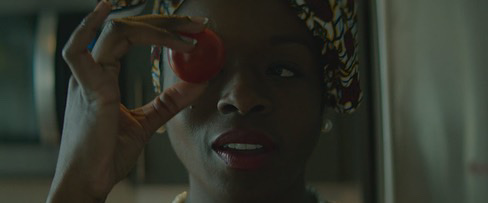
Most filmmakers have a signature thing they do in their movies. Do you have that yet?
According to people, yes. I like to have pidgin in my work. And I like a level of playfulness. I don’t do this intentionally, but there’s always some emotion that’s highlighted when you watch something I make, whether it’s happiness, empathy or curiosity.
I’m not even sure I want a pattern. The films I make are a reflection of where or who I am, and people evolve. What I make will also evolve.
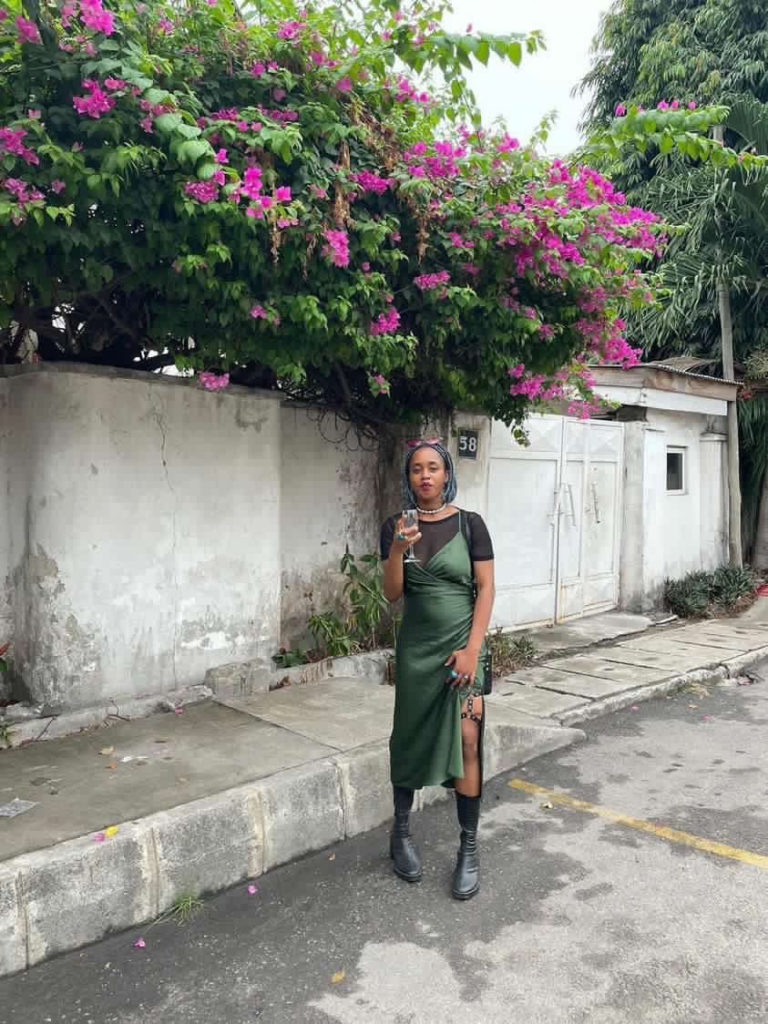
What fun things do you do when you’re not busy making films in your head and in real life?
I really like to experience where I am. When I’m in Lagos, I like to experience Lagos. Recently, a friend of mine wanted to visit someone in a convent, and because I’d never been to one, I went with him. I just like to experience different aspects of life. I like eating, watching films and digital collaging — putting together fragments of images to create something different.
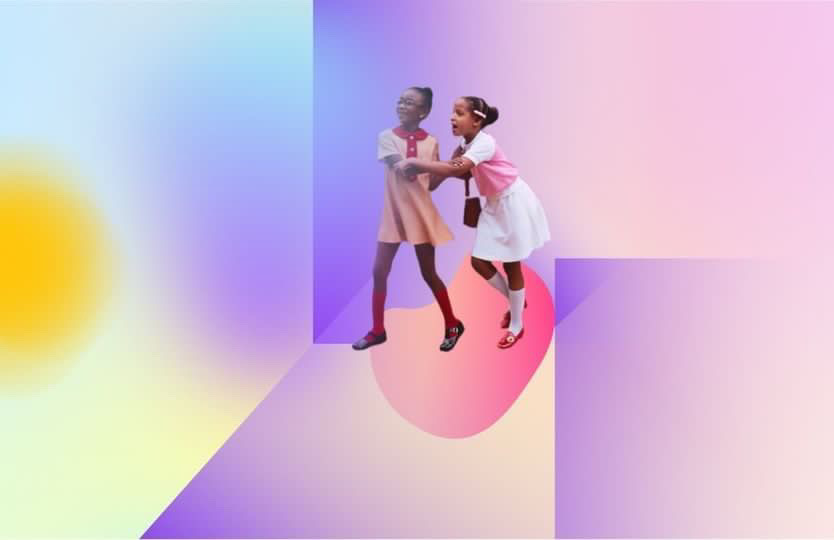
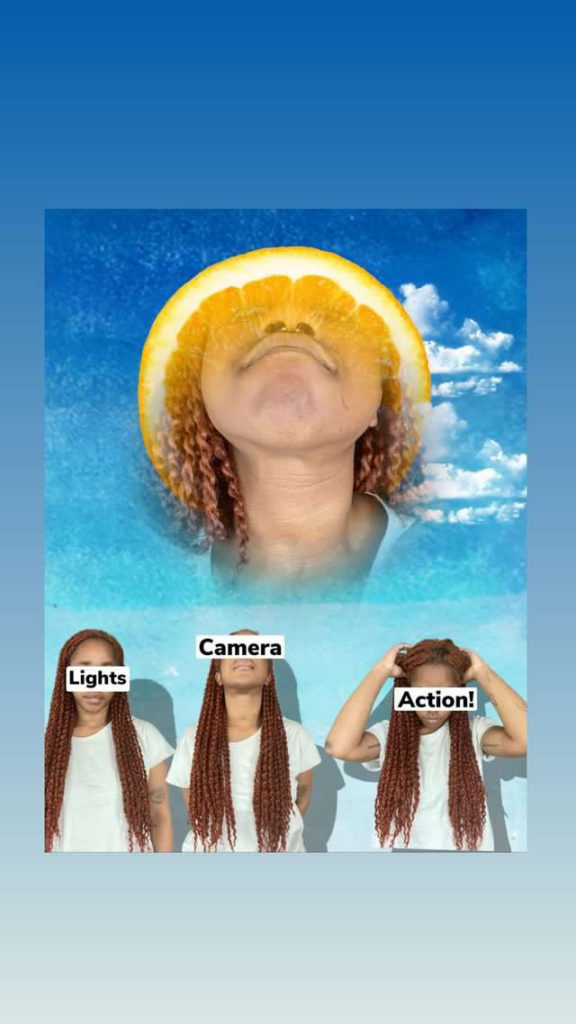
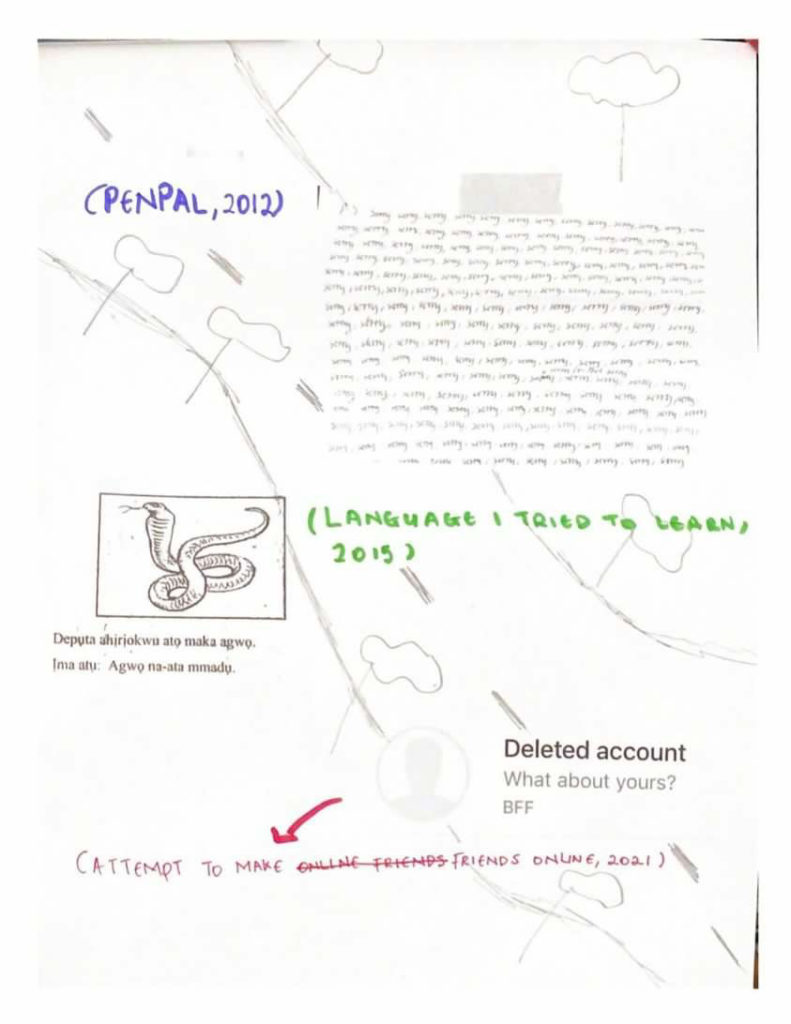
Are there some skills you feel filmmakers and writers should have to be able to create quality work?
Emotional intelligence is very important. Being able to tell a story in a way that’s respectful to characters and the people they represent. Patience is important, but a lack of patience is also important. It’s okay to wait for something, but sometimes, you have to actively go after it too. For methods? I’m not a stickler. I enjoy seeing different methods at work. Compatibility is also important in filmmaking.
You make the process sound like smooth sailing. Have you never had a clash with people you work with?
I haven’t had issues on set. Communication is important. As sets get bigger, you get to deal with more complications. You just have to figure it out. It’s good to work with people you’re compatible with on set.
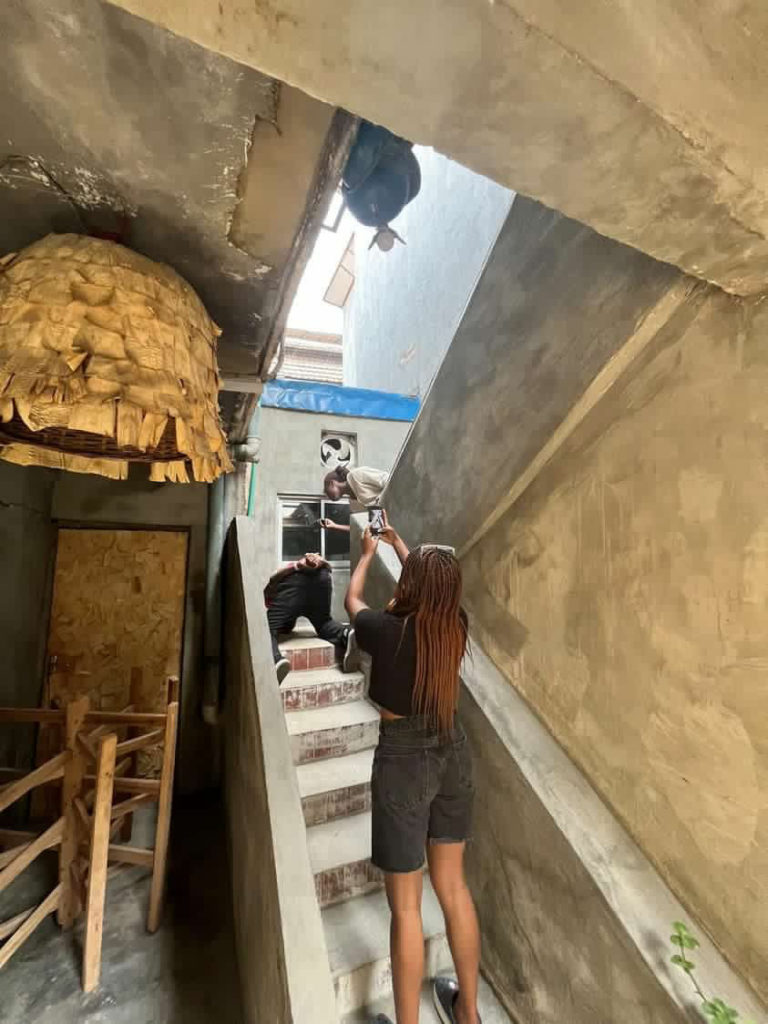
Do you have any favourite career moments so far?
I like hearing people tell me they like my work, explaining perspectives even I who wrote it never saw. The story has gone beyond me. It’s out there, and other people are sharing it. In terms of milestones, it was nice to have Ixora and Carmilla show at S16, and just see people connect with it and talk about it. It was nice to see everybody involved getting celebrated. Having my films shown at several festivals last year was nice.
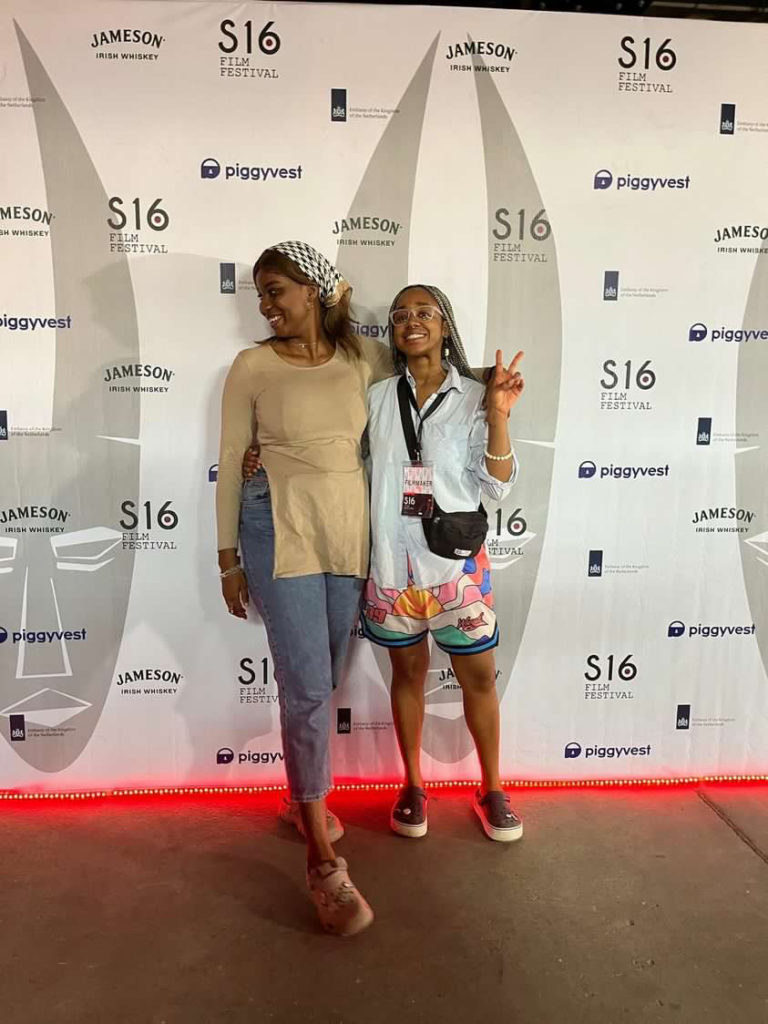
Are there projects you’re working on that we should be expecting?
The next project I’ll release is an experimental film. Beside that, I made a music video for an artist, it’ll be out soon. Longterm, I want to make feature films. I’d love to work with Celine Sciamma, Love and Basketball star, Sanaa Lathan, and Genevieve Nnaji. There are some people I want to work with but I also don’t want to work with them because I just want to watch them. In a way that I appreciate filmmakers’ capacity to create and my ability to experience their creations.
At some point, my goal was to create films with an optimistic narrative for queer people, and I still want to do that, but I also want to tell stories that experiment with what can be. This involves a level of absurdism. I want to continue to create things that make people feel something.
Have you watched any film and wished you were the one who made it?
Love and Basketball I was 13 or 14 when I watched it. I still think with film it’s not impossible. I don’t think it’s an industry where you can only wish you could create something. You always have the space to do that. I can decide to make a film based on Love and Basketball. My character could be queer and find love. I’m not sure if what she had with Quincy was love or not; I would explore her relationship with Gabrielle Union’s character or Sidra instead of him.
I’d have liked to make Nneka, the Pretty Serpent and Suicide Mission. I’d have made them more playful but scary still.





